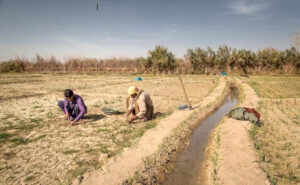HERAT CITY (SW) – Doctors in Herat province are sounding the alarm over the lack of facilities in public health centers to test for the “Rh negative” blood type among pregnant women, particularly those living in remote villages.
Many women are losing their children due to a lack of awareness regarding this critical health issue.
At the Herat Maternity Hospital, medical professionals have confirmed that there are no public health centers available for the diagnosis of “Rh negative” blood type in pregnant women.
Atefa Amini, an obstetrician at the hospital, said, “We unfortunately do not have any centers for testing women with Rh negative blood in Herat Maternity Hospital or the provincial hospital. There are no plans in place for these individuals.”
Naseri, another physician at the hospital, highlighted that upon examining women who have lost their children, it was discovered that the cause was often their “Rh negative” blood type. “If a mother has a negative blood type, her immune system may react to the red blood cells of the newborn, leading to issues such as hemolytic diseases and potentially causing miscarriages in the first trimester. It can also result in atrophy in the second and third trimesters, affecting the fetus negatively,” he explained.
Local residents Laila and Mohadesa reported that due to a lack of awareness regarding “Rh negative” blood type, some of their children were born with health issues.
Laila shared, “During my first pregnancy, I was unaware that my blood type was negative while my husband’s was positive. Unfortunately, my son has thalassemia and requires blood transfusions monthly. He has constant headaches, is often ill, and has a larger head with a poor complexion.”
Mohadesa also said: “Three of my children are healthy, but the fourth is not. He is now six years old and cannot speak or communicate properly. We consulted a doctor who suggested that we must have had complications.”
Mohammad Aref Jalali, the chief physician at the Herat provincial hospital, confirmed the existence of this challenge, emphasizing that no medical centers for testing “Rh negative” blood types currently exist in the region.
He remarked, “Typically, women’s blood types are determined before delivery, and if it is Rh negative, they usually receive an Rh immunoglobulin injection. However, there are no systematic programs in place to support and monitor these women.”
The low level of awareness among pregnant women in both urban and rural areas of Herat is leading to numerous preventable child fatalities or unhealthy births, highlighting the urgent need for intervention from health authorities and organizations focused on maternal and child health.






